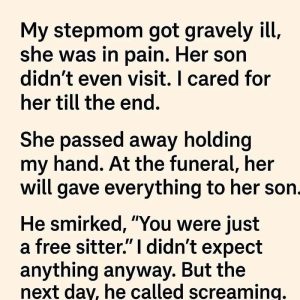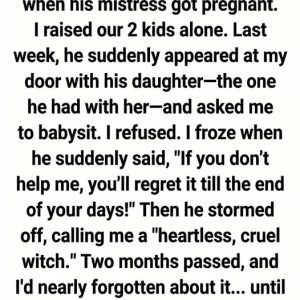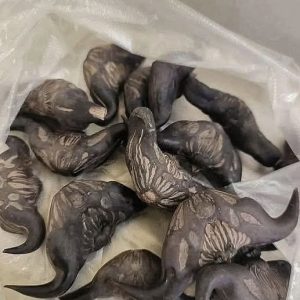The rain came down in sheets, washing the streets in silver as a ragged old man shuffled toward a pristine showroom. His jacket clung to him like a second skin, soaked through, threadbare. He pressed a trembling hand against the glass and gazed inside at the sleek cars gleaming beneath soft white lights. Among them sat a silver Aston Martin, a machine of rare beauty—and broken silence. Mechanics had tried and failed to bring it back to life.
The man stepped inside. Wet footprints trailed behind him, staining the polished white tiles. The salesmen glanced up, their disdain immediate. His beard was unkempt, his boots worn to ruin, his fatigues old enough to belong in a museum. One young salesman sneered, “Can I help you?” His tone made it clear he meant the opposite.
The old man’s voice was rough, scraped by years of silence. “That Aston Martin in the bay,” he rasped. “The engine’s not breathing right.”
The salesman laughed out loud. “Breathing? Sir, our mechanics are the best in the business.” He smirked at his colleagues. “They know what they’re doing.”
The old man ignored the mockery. His eyes, faded blue like a summer sky left too long in memory, stayed on the car. “I can fix it,” he said simply. “All I ask is a hot meal in return.”
That drew another round of laughter. “Did you hear that?” the salesman called. “This guy says he’ll fix a quarter-million-dollar Aston Martin for a sandwich.”
The dealership owner, Mr. Abernathy, emerged at the noise. A heavy man in a tailored suit, he frowned. “What’s going on here?”
The salesman pointed at the veteran. “He wandered in off the street. Says he can fix Mrs. Davenport’s car—for food.”
At the name Davenport, Abernathy’s expression hardened. Mrs. Davenport was his most important client. Her Aston Martin had sat lifeless in his shop for a week. His mechanics had replaced half the engine, hooked it to every diagnostic tool money could buy, and still it refused to run. Pressure was building. He studied the homeless man closely. Absurd, yes—but there was something in his eyes. A quiet certainty.
“You think you can fix it?” Abernathy asked, skeptical.
“I know I can,” the man said.
Abernathy had made his fortune on gambles. He smiled slowly. “Fine. If you fix it, I’ll buy you the best meal in town. If you can’t—you scrub this floor with a toothbrush.”
The old man nodded once. “Fair.”
In the service bay, the mechanics looked him up and down like a bad joke. Gus, the lead mechanic, snorted. “This guy’s your consultant?”
But the veteran wasn’t listening. He laid a weathered hand on the hood, closing his eyes for a moment. Then he asked them to start the car. The sputtering cough told him everything.
“It’s the fuel pump,” he said, his voice steady now. “Not original. Too modern. Wrong pressure. She’s choking herself.”
Gus bristled. “We checked the pump. It works.”
“You checked if it moves fuel,” the old man said softly. “Not whether it moves it right.” He pointed at a tiny regulator valve. “This model is delicate. You’re drowning her.”
The mechanics fell silent. They’d overlooked the simplest thing. The veteran picked up a wrench. Despite the tremor in his hands, his movements were precise, almost elegant. For an hour, the only sounds were metal against metal, the quiet rhythm of a man who had spent a lifetime in communion with machines.
When he stepped back, he wiped his hands on a rag. “Try her now.”
Gus turned the key. The Aston Martin came alive with a deep, perfect growl that vibrated through the bay. Not a sputter, not a cough—just raw harmony.
Abernathy stared, astonished. “How did you do that?”
The old man smiled faintly. “I listened.”
His name was Jack Riley, though most just called him Jack. Once, long ago, he’d been Sergeant John Riley, a battlefield mechanic in a war that swallowed men whole. They called him “the magician” because he could rebuild an engine under fire, make dead machines breathe again when lives depended on it. But the war had followed him home. The ghosts of the men he couldn’t save, the bottle, the loss of his family. For decades he had drifted—forgotten, invisible, broken.
Abernathy smelled opportunity. He offered Jack a room at the shop, three meals a day, and a stipend in exchange for fixing the “unsolvable” cars. Jack agreed—but with one condition. “I don’t want money,” he said. “I want an old car. Something everyone else has given up on.”
He was given a rusted-out ’69 Mustang. As weeks passed, Jack’s legend grew. Word spread: the “auto whisperer” who could fix the unfixable. Clients came from across the city, bringing machines other shops had condemned. He never used computers or fancy diagnostics. He listened. And somehow, the engines obeyed.
But Jack wasn’t just fixing cars. Piece by piece, he was mending himself. And then one day, a woman appeared. She was in her forties, red hair like fire, chin set with familiar determination. Tears welled in her eyes as she whispered a word Jack hadn’t heard in forty years: “Daddy.”
Elizabeth—his daughter. The child he’d lost when his demons drove his wife away. Their reunion was raw, tangled in anger, grief, and years of absence. She demanded answers he struggled to give. “Why didn’t you come home?” she asked, voice shaking.
Jack looked at his scarred hands. “Because I didn’t know how,” he admitted.
Slowly, painfully, they began to rebuild. She brought her sons, Mark and Luke, to the garage. Jack taught them the language of engines—balance, patience, respect. With greasy hands and quiet lessons, he found his way back into their lives.
When at last he finished restoring the Mustang, it purred like new. Abernathy wanted to parade it across the country as Jack’s masterpiece. Jack refused. “I’m done being your showpiece,” he said. He handed Abernathy his old medals—the Purple Heart and Distinguished Service Cross. “These buy my freedom.”
Abernathy, for once, had no answer. He let Jack go.
Jack opened a small garage of his own on the edge of town. He called it Second Chance. He didn’t ask for much—sometimes just a meal, sometimes a promise to pay it forward. He fixed the cars everyone else abandoned, and in doing so, he fixed the people who brought them.
And one evening, as the sun dipped low, a thin teenager appeared in his doorway. Clothes torn, eyes hollow. He glanced at a broken motorcycle in the corner, then back at Jack. “Mister,” he whispered, “can I fix it for a meal?”
Jack saw himself in the boy—the ghost he used to be. He smiled, soft but steady, and tossed him a rag.
“You don’t have to fix it for food,” he said. “But you can help me fix it. Then we’ll eat together.”
For the first time in a long time, Jack Riley wasn’t a ghost. He was home.





